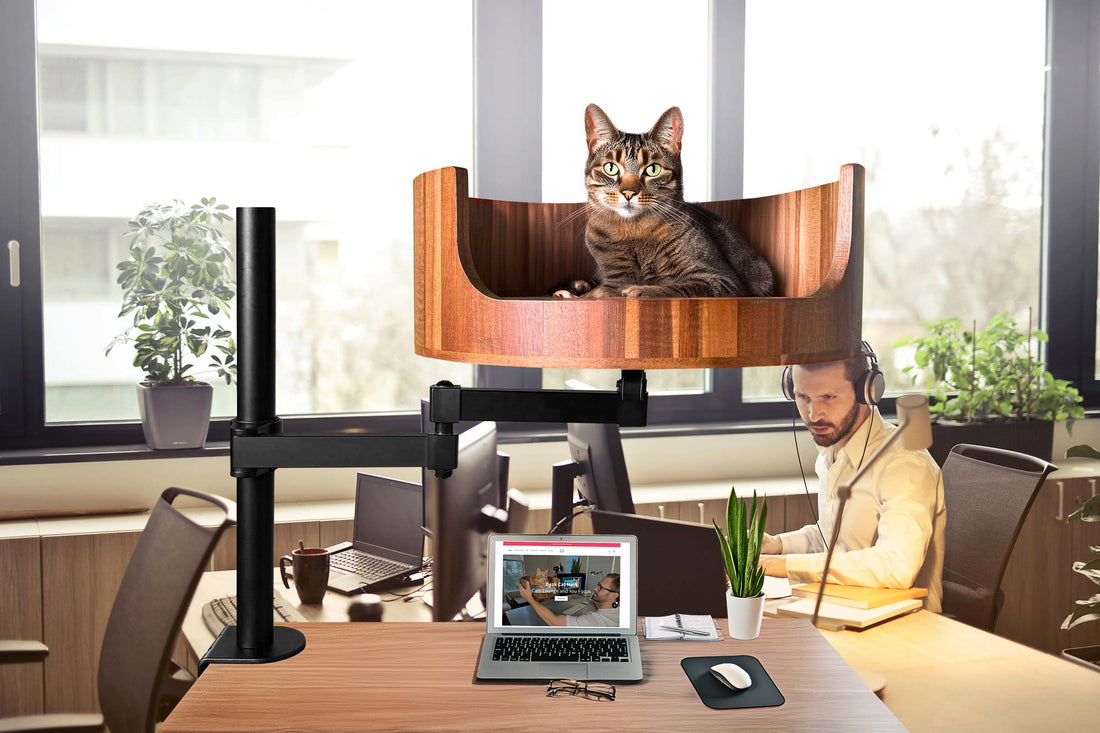
Diatomaceous Earth Made My Cat Sick: What to Know
Share
If you're a cat owner who's looking for natural ways to combat fleas and ticks, you may have come across diatomaceous earth as a popular option. This powdery substance is made of fossilized diatoms and is touted for its effectiveness in killing pests while being safe for pets and humans. However, recent reports have emerged of cats falling ill after being exposed to diatomaceous earth, leading many pet owners to question its safety. In this article, we will delve into the potential risks of using diatomaceous earth for pest control in homes with cats, and what cat owners need to know to keep their furry friends safe.
One such case that has raised concerns is that of Desk Cat Nest, a popular online retailer of pet products. Customers have reported cases of their cats experiencing respiratory issues, skin irritation, and gastrointestinal problems after being exposed to diatomaceous earth products sold by the company. This has sparked a debate among pet owners about the safety of using diatomaceous earth around cats and whether alternative pest control methods should be considered. As we explore the potential dangers of diatomaceous earth for cats, it is important for cat owners to be informed and take necessary precautions to protect their pets from harm.
1. Diatomaceous earth can be harmful to pets if inhaled or ingested, causing respiratory issues or digestive problems.
2. It is important to keep diatomaceous earth products away from areas where your pets frequent to prevent accidental ingestion.
3. If your pet shows signs of illness after exposure to diatomaceous earth, seek veterinary care immediately.
4. Alternative natural flea control methods, such as cedar chips or regular grooming, can be safer options for pet owners.
5. Educating yourself on the potential risks of diatomaceous earth can help prevent harm to your beloved pets.
What is Diatomaceous Earth and How Does it Work?
Diatomaceous earth is a fine powder made from the fossilized remains of diatoms, a type of algae. It is commonly used as a natural pesticide and insect repellent due to its abrasive texture that damages insects' exoskeletons, ultimately leading to their demise. While it is generally considered safe for use around the home and pets when used properly, there have been cases where ingestion or inhalation of diatomaceous earth has led to adverse effects in cats.
Common Symptoms of Diatomaceous Earth Poisoning in Cats
Ingestion or inhalation of diatomaceous earth can cause a range of symptoms in cats, including respiratory issues, gastrointestinal problems, and skin irritation. Cats may experience coughing, wheezing, vomiting, diarrhea, or lethargy after exposure to diatomaceous earth. In severe cases, ingestion of large amounts of diatomaceous earth can lead to more serious health issues such as dehydration, seizures, or organ damage.
What to Do If Your Cat is Sick From Diatomaceous Earth
If you suspect that your cat has ingested or inhaled diatomaceous earth and is exhibiting symptoms of poisoning, it is important to seek veterinary care immediately. Your veterinarian may perform a physical examination, run diagnostic tests, and provide treatment such as intravenous fluids or medication to help your cat recover from the effects of diatomaceous earth poisoning. It is crucial to provide your veterinarian with as much information as possible about the type and amount of diatomaceous earth your cat may have been exposed to.
Preventing Diatomaceous Earth Poisoning in Cats
To prevent accidental poisoning, it is essential to store diatomaceous earth products in a secure location that is out of reach of pets. When using diatomaceous earth in the home or garden, take precautions to minimize your cat's exposure to the powder. Consider using alternative pest control methods that are safe for pets, or consult with a veterinarian or pest control professional for recommendations on the safest ways to use diatomaceous earth around cats. Regularly monitor your cat for any signs of illness or discomfort, and seek prompt veterinary care if you suspect that your cat has been exposed to diatomaceous earth.
Desk Cat Nest FAQ
Can diatomaceous earth make my cat sick?
While diatomaceous earth is generally considered safe for use around pets, it can potentially cause respiratory irritation if inhaled in large amounts. It is important to follow the instructions for application carefully and ensure that your cat does not come into direct contact with the diatomaceous earth.
What should I do if my cat has ingested diatomaceous earth and is showing signs of illness?
If your cat has ingested diatomaceous earth and is displaying symptoms such as vomiting, diarrhea, or lethargy, it is important to contact your veterinarian immediately. They will be able to provide guidance on the appropriate course of action to ensure your cat's health and safety.
Is the Desk Cat Nest made with diatomaceous earth?
No, the Desk Cat Nest is not made with diatomaceous earth. It is constructed with high-quality materials that are safe for your cat to use and enjoy without risking exposure to potentially harmful substances.
How can I prevent my cat from coming into contact with diatomaceous earth?
To prevent your cat from accidentally inhaling or ingesting diatomaceous earth, it is important to apply the product in areas that are inaccessible to your cat. You can also consider using alternative pest control methods that do not involve the use of diatomaceous earth.
In conclusion, choosing a Desk Cat Bed as a safe alternative to diatomaceous earth can help prevent your cat from getting sick. The natural materials used in the construction of the bed provide a comfortable and non-toxic sleeping environment for your furry friend. With benefits such as breathability, durability, and easy cleaning, the Desk Cat Bed is a valuable choice for ensuring your cat's health and well-being. Say goodbye to harmful substances like diatomaceous earth and give your cat the gift of a safe and cozy sleeping space with Desk Cat Bed.



















































